The Moral Animal: Why We Are, the Way We Are: The New Science of Evolutionary Psychology
£9.49
One of the most provocative science books ever published—”a feast of great thinking and writing about the most profound issues there are” (The New York Times Book Review).
“Fiercely intelligent, beautifully written and engrossingly original.” —The New York Times Book Review
Are men literally born to cheat? Does monogamy actually serve women’s interests? These are among the questions that have made The Moral Animaled one of the most provocative science books in recent years. Wright unveils the genetic strategies behind everything from our sexual preferences to our office politics—as well as their implications for our moral codes and public policies. Illustrations.
Read more
Additional information
| Publisher | Vintage, Reprint edition (3 Nov. 2010) |
|---|---|
| Language | English |
| File size | 3463 KB |
| Text-to-Speech | Enabled |
| Screen Reader | Supported |
| Enhanced typesetting | Enabled |
| X-Ray | Enabled |
| Word Wise | Enabled |
| Sticky notes | On Kindle Scribe |
| Print length | 612 pages |

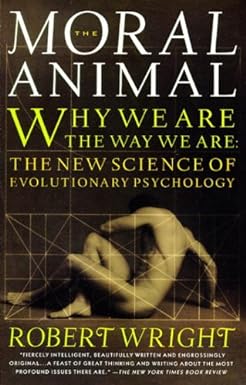
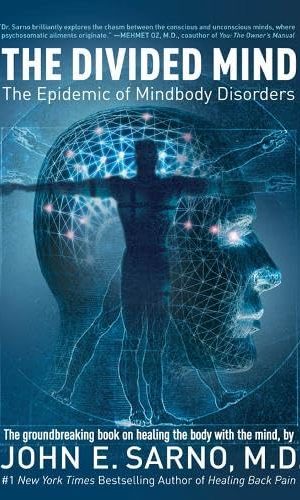


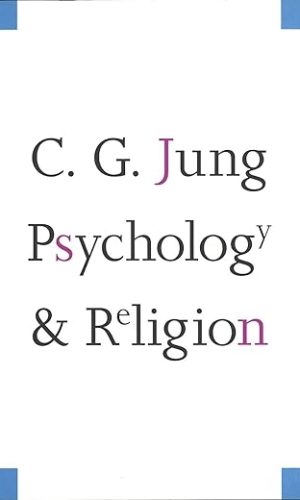

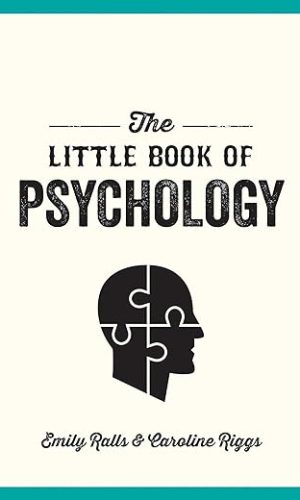

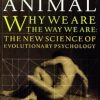
by David Wylie
As someone with only a basic understanding of evolutionary psychology this book was a tremendous eye opener and has changed the way I see myself and others. Required reading for anyone who wants to understand themselves and others a little better.
by Sphex
Human anatomy applies to all peoples of the world. Why should the anatomy of the mind be any different? Every living human has the same sort of heart. Every thinking, feeling, loving, caring, hating, judging, lusting person has the same sort of brain. Being vastly more complex, the brain has more scope for individual variation while remaining a functioning organ, but still there is a huge overlap between the brains of any two people on the planet, and so also between the behaviours those brains generate. Our everyday behaviour is rooted in a biology we all share, and evolutionary psychology is its scientific study. In this classic work, Robert Wright explores this new science and shows how it leads to a deeper understanding of ourselves and our social world.
We all have intuitive ideas about why we are the way we are: nationality, colour, parental influence, peer pressure, culture, and so on, all partly determine our identity. One fact beyond intuition, however, is the rather longer timescale over which evolution has shaped both our bodies and our brains. Just as the circumstances of a childhood can affect a whole life, so too does the ancestral environment we grew up in as a species continue to make itself felt. That it does so in ways which are largely hidden from conscious view only serves to point up the importance of evolutionary psychology. We should not make the mistake of comparing the sparsely populated open savannah with the bustling cities many of us now live in and concluding that our evolutionary history has no relevance. We are remarkably flexible in many ways, but we are most certainly not blank slates. Human nature is a collaborative project in which we are often the junior partners who cannot edit the words of long-dead senior scriptwriters.
There are many adaptations that have outlived their logic, but which still affect our behaviour. An example is the sweet tooth. “Our fondness for sweetness was designed for an environment in which fruit existed but candy didn’t.” (Any sensible person reading this will immediately provide their own scare quotes around that word “designed”, as Wright himself does elsewhere. Natural selection works as if “it were consciously designing organisms” to behave in a certain way. There is no designer, of course, nor any plan or purpose.) We may want to be slim but natural selection “demands” that we cram in as many calories as we can to stave off the Malthusian extinction that was a constant threat to our ancestors.
Personal happiness is often taken to be a natural desire. Its pursuit has even been written into a political constitution. However, natural selection doesn’t “want” us to be happy, it “wants” us to be genetically prolific, and those two goals are uncomfortable bedfellows. We are each under the hypnotic spell of a single truth: “My hereditary material is the most important material on earth; its survival justifies your frustration, pain, even death.” Fortunately for us lumbering collections of replicators, we share some of this precious material with others, so this bleak doctrine of the selfish gene is also capable of generating cooperative behaviour, such as reciprocal altruism. The simple strategy of tit for tat – “do unto others as they’ve done unto you” – models how this could have evolved.
Rigid behavioural responses have a limited usefulness, especially in a social environment that can change more rapidly than the physical one. People don’t always repay kindness with kindness, but sometimes lie, cheat or steal – and prosper as a result. Remember, if you can get more of your genes into the next generation by behaving badly, that’s what natural selection “wants” you to do. Those on the receiving end have other ideas, of course, as do their genes, and natural selection will “help” them too if they can come up with a way of reducing the payoff from lying, cheating and stealing, that is, if they can modify the social environment so that such behaviours are discouraged. Hence feelings like guilt evolved, perhaps first gaining a foothold through kin selection, which encourages us to look out for siblings and to feel bad if we don’t.
A family of related individuals is part of a broader society, and both are held together by varying amounts of the various “ingredients of morality, from empathy to guilt”. Evolutionary psychology explains “the adaptive value of a malleable conscience” and points to its “firm genetic basis”. The seeming paradox of flexibility built on fixed genetic foundations can be dissolved by thinking of human nature as consisting “of knobs and of mechanisms for tuning the knobs”, where the tuning depends on the particular social environment encountered.
Paradox is one thing, controversy another. Given the long struggle to achieve political and legal equality between men and women (rights still not recognized in some parts of the world), it’s hardly surprising that some took umbrage at the idea that, for example, “male and female jealousy should differ”. We all accept there are obvious physical differences between men and women, but there is also an equally obvious behavioural difference: while men “can reproduce hundreds of times a year, assuming they can persuade enough women to cooperate”, women “can’t reproduce more often than once a year”. When it comes to maximizing their genetic legacy, men and women have different agendas, not as a result of culture or conditioning but because of “the scarceness of eggs relative to sperm”. Much of human sexual psychology flows from this biological fact, including the Darwinian perils of cuckoldry for a man and desertion for a woman.
“The new Darwinian synthesis is, like quantum physics or molecular biology, a body of scientific theory and fact; but, unlike them, it is also a way of seeing everyday life.” This is a source of excitement to some and anxiety to others. In intellectual terms, it is reassuring that Wright is quite happy to describe some elements of the theory as speculative, supported only by circumstantial evidence. In terms of social policy, we should not despair that human nature relies in part on largely fixed and selfish genes, because “the most radical differences among people are the ones most likely to be traceable to environment” – and this is something we can influence.
Religion has long monopolized ethics, with disastrous results. Even one small sect of one religion after five hundred years cannot decide whether women bishops are a good or a bad thing, and yet they still claim to provide moral leadership. The scientific study of our moral nature holds out far more hope, both in practical terms of informing policy but also as an awe-inspiring insight into the “deeper unity within the species”. Perhaps most hopeful of all, and most surprising to find in a book of science, is one of Robert Wright’s conclusions, “that the new paradigm will tend to lead the thinking person toward love and away from hate”.
by silverfawkes
The book is good when it sticks to a summary of the new discipline of evolutionary psychology. The summary and explanation of why group selection is not a valid theory is excellent. But when he strays into a polemic in favour of Victorian morality he is partial and argues by assertion rather than with scientific neutrality. His attempts to provide a psychological analysis of Darwin’s character and life are clumsy and spoil the book.
I have come to tolerate badly edited free books from Amazon but having paid good money I feel the lack of even s simple spell check makes this a serious condemnation of Amazon abusing its partial monopoly of e-books. I give it 3 stars as an average of 4 stars for content and zero for bad presentation and editing
David
by Bio
This book is actually quite humorous in a dry sort of way. I’m confident this was intentional by the Author as evolution (Gene Selection) doesn’t particularly have to play by the ideals of modern human moral values systems. So a sense of humour can help “lubricate” some of the more “Sharp” points of “Evolution in Teeth & Claw”. But of course Teeth and Claws do exist as do the Cuddly and Cute evolutionary adaptations.
Evolutionary Biology (inc psychology/human behaviour ) has had many historic landmark discoveries (many of which are cited throughout this book) that have shone a scientific light on one of the most significant human social questions “Why We Are The Way We Are”?. Anyone (desiring to learn fact based information) whom reads this book with a questioning (critical) mind, that’s capable of taking into consideration information that’s founded on sound methodical research will find out that Evolutionary Psychology says much about human behaviour.Some of this behaviour many already sense at some level (“Folk wisdom” ,but socially/culturally are inclined not to say due to the social costs occured from those whom are easily offended by anything which contradicts their central premise.e.g. “deeply” held emotionally based beliefs). This book also contains information that nobody whom doesn’t study the Evolutionary Psychology/Biology research can be aware of (The deeper physiology that ultimately emerges, as feelings, that motivate humans to behave and think (or think and then behave) one way or another.
So what’s it worth to better understand yourself and understand/ predict the behaviours/spoken words of those around you?. That depends on the context of the environment you find yourself in and what your objectives are. If your in a mental health profession (objective = health), evolutionary psychology can help alleviate those whom suffer irrational fears. If your a marketing sales person (objective =sales) evolutionary psychology can help companies to sell products using more ethically based advertising (e,g, Healthy food advertising aimed at kids to help get them started on the right track). If your in politics (and hopefully have a generally good ethical character because good ethical people voted for you), evolutionary psychology can help to form evidenced based policies that deliver rewarding social results that increase social equality & provide equal opportunity (a level “playing” field not based on unjustified discrimination).
In summary:
The Book, ‘The Moral Animal’ is another great addition to the science based books genre (though much research has been published since), written in such a way that the layperson can get a “feeling” (comprehension) of the scientific consensus of that topic. If you want to effectively learn chemistry there is no other way than to learn some basic concept of Atoms. If you want to effectively learn what and why humans are the way they are, there is no better way than the science based information of Evolutionary Psychology/ Biology.
Natural + Sexual selection + genetic drift /Time= All life on Earth (& potentially some Life off Earth).